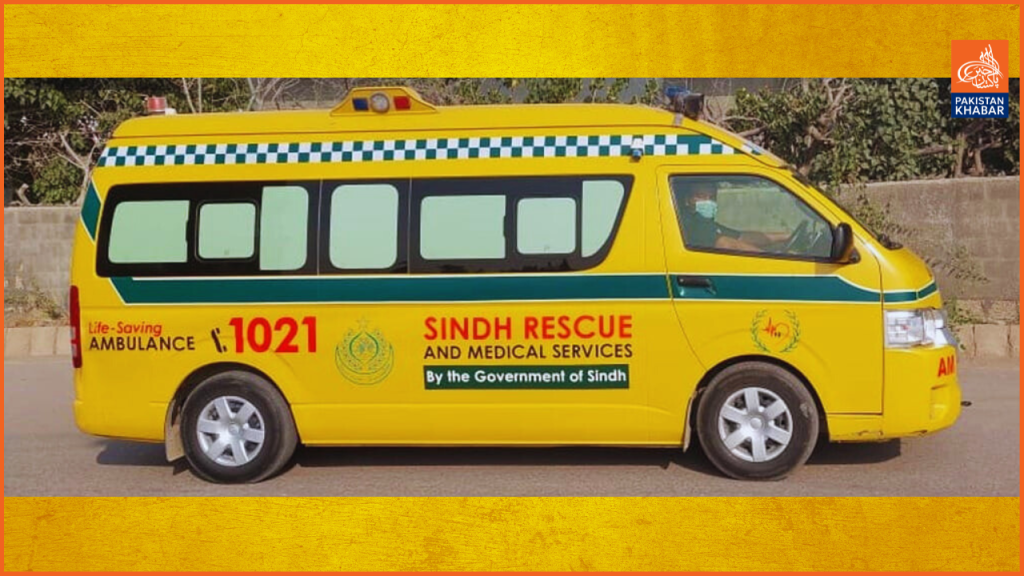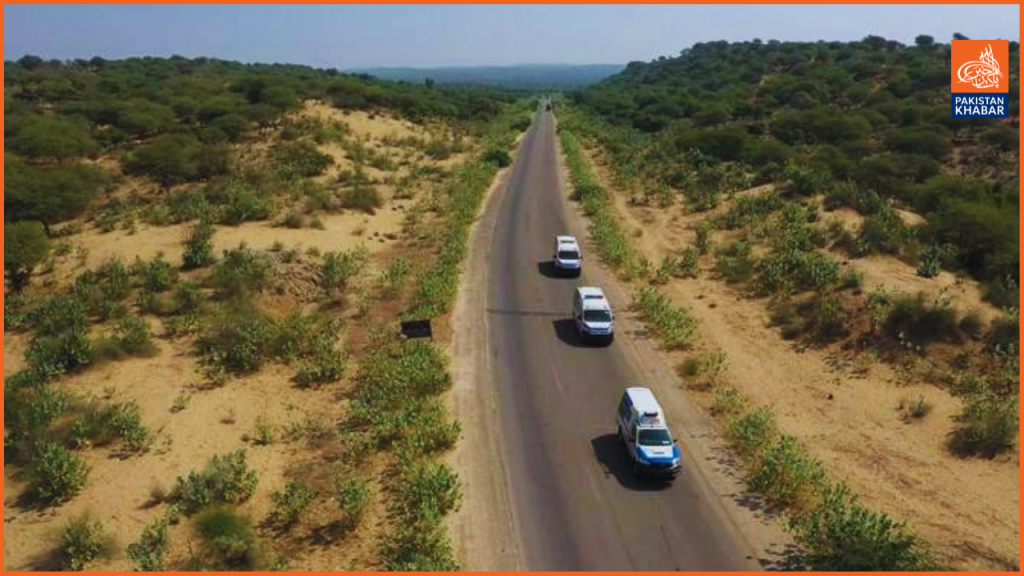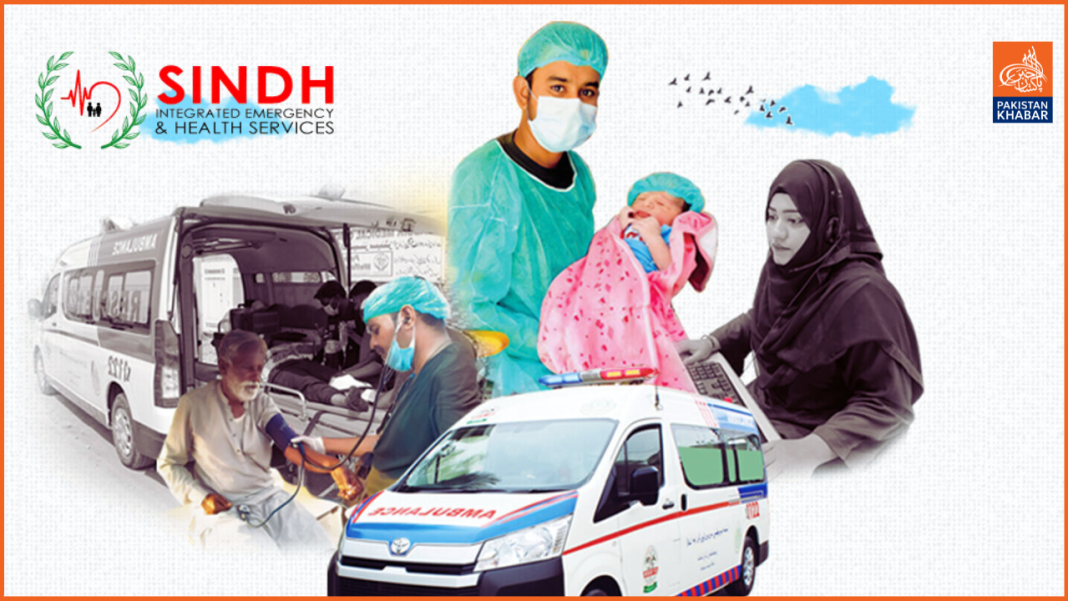The early morning hush of Thatta, a small, remote village in Sindh, Pakistan, was shattered by a frantic call. A young woman, just 26 years old, was in labor, her cries of pain echoing across fields and mud homes. Miles away from the nearest health facility, her family anxiously dialed the helpline for the Sindh Integrated Emergency and Health Services (SIEHS). It was her only lifeline.
Minutes after the distress call, the humming engine of a bright yellow ambulance interrupted the dawn’s stillness. Staffed with a team of medical workers trained in emergency obstetric care, the SIEHS ambulance raced down uneven highways, determined to reach the caller before it was too late. Inside, nervous yet focused paramedics prepared supplies and ran through their emergency protocols. Time, they knew, was not on their side.

Shabeera Bibi’s mud home came into view just as the sun’s first light crept over the horizon. She was carried onto a stretcher, beads of sweat glistening on her face, her breath rasping with each contraction. The team positioned themselves deftly, stabilizing her condition before securing the door and speeding toward the nearest hospital. But midway through the harried drive, it became clear that Shabeera’s baby wasn’t going to wait.
The decision was made. Amid the soft vibrations of the moving ambulance, her husband’s trembling consent, and the steady partnership of the medical team, a baby boy entered the world. The cries of newborn Fayyaz filled the confined space, a sound more powerful than the hum of sirens. It was a defining moment for the family, one steeped in relief and gratitude.
Shabeera sat days later on a simple charpoy outside her modest home, her baby snug in her arms. “I was scared for my life and my son’s,” she said softly, tears brimming in her eyes that reflected a mixture of exhaustion and joy. “But Allah saved us both. And for that, I’m endlessly thankful.”
Stories like Shabeera’s illustrate the harsh maternal health realities of Sindh, Pakistan’s second most populated province. Here, access to medical care is a luxury many cannot afford. According to reports, 30% of the women receive no prenatal care, and 60% deliver their babies far from any health facility. These alarming statistics are just one aspect of a country that ranked amongst the four with the highest maternal mortality figures globally in recent years.

Enter SIEHS, a transformation born from a public-private initiative launched in 2021. Their fleet of HOPE ambulances has since become an emblem of life-saving intervention in Sindh. Operating round the clock and providing free emergency care, these ambulances have bridged the vast healthcare gaps in rural communities. Shabeera’s baby marked one of nearly 100 deliveries this year in the cramped confines of these life-saving vehicles.
“We respond to every emergency call as fast as possible,” explained Farheen Haider, an emergency medical technician (EMT) at SIEHS. She detailed how the team supports critical cases, often performing procedures within seconds of decision-making when hospitals are out of reach.
To date, SIEHS has safely delivered over 400 babies inside its ambulances, and in each case, both mother and child lived. The dedication of these medics, coupled with their resilience under pressure, has turned these challenges into victories.
Shabeera’s mother-in-law recounted the family’s panic that morning. “We are poor and had no means to get her to the hospital,” she said, still shaken. “But then she said she couldn’t wait, and the ambulance arrived just in time.”
With 600 such ambulances stationed across Sindh’s districts, the SIEHS service continues to move expecting mothers to hospitals whenever possible. But when it’s not? They turn cramped, four-wheeled vans into makeshift delivery rooms, equipped with trained hands, essential tools, and unwavering resolve.
For expectant mothers living on isolated plains and dirt roads, these ambulances carry more than medical equipment. They carry hope. And for families like Shabeera’s, they deliver miracles.



